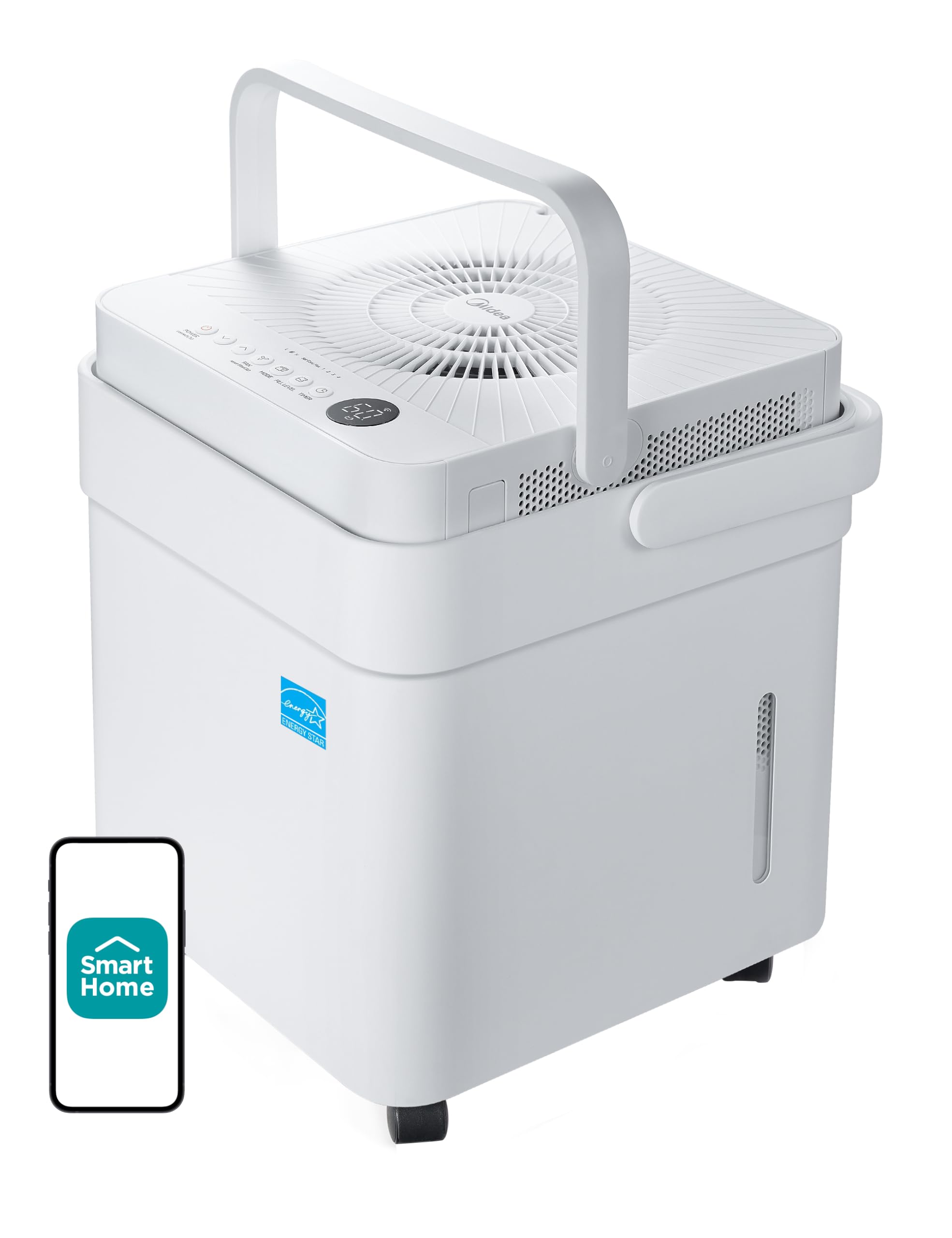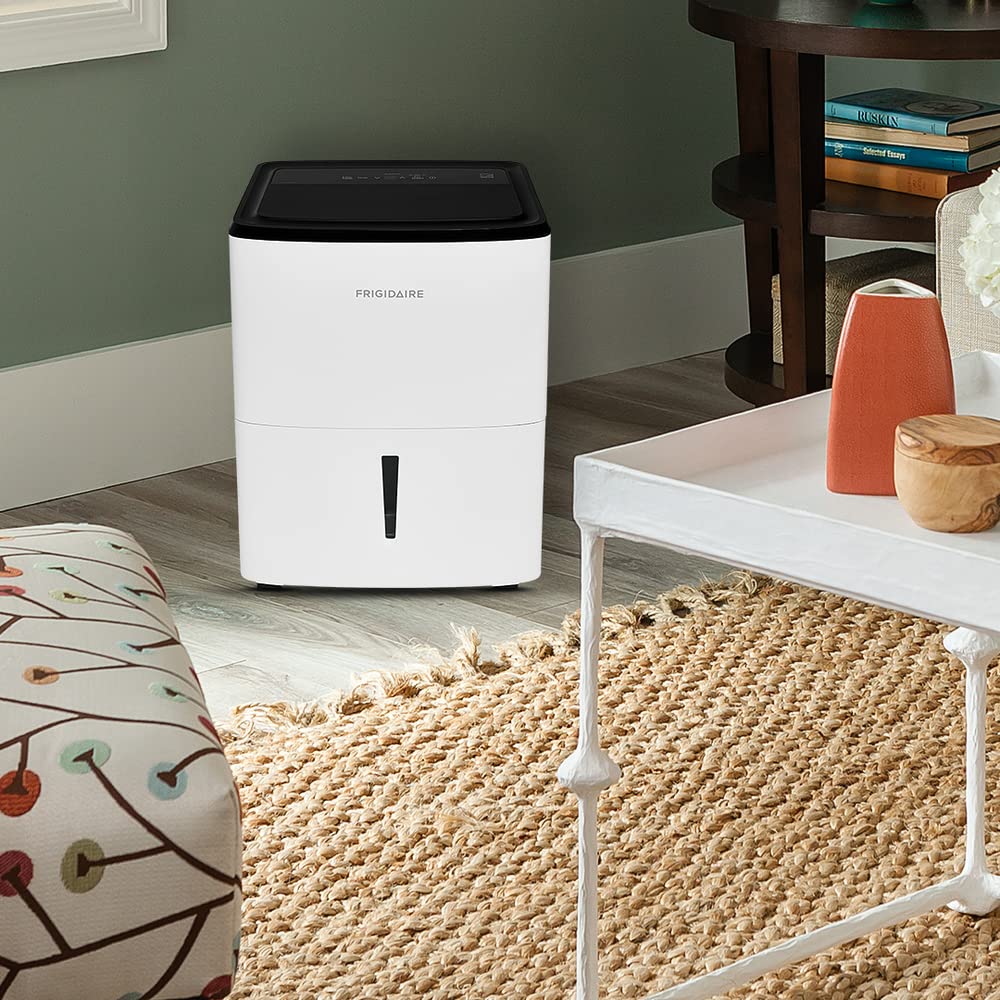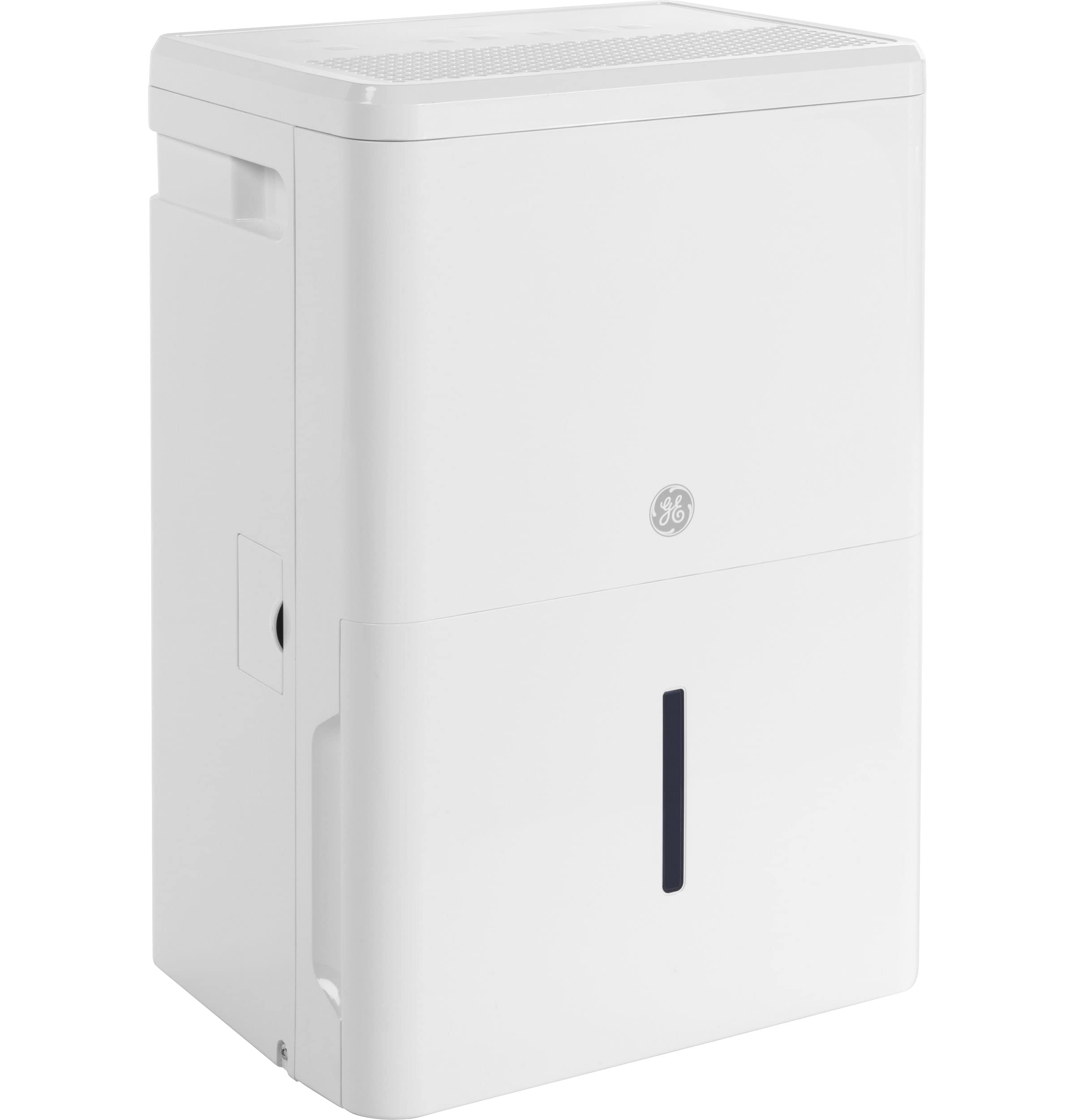Dehumidifiers
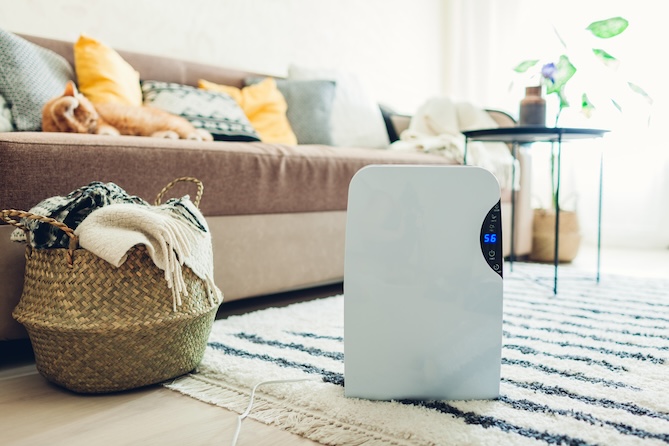
The EPA recommends that you maintain an indoor humidity of between 30 - 50% in your home. Humidity levels higher than that can increase the presence of mold in your home.
Dehumidifiers help maintain humidity by removing moisture from the air. This prevents the growth of mold spores and dust mites, limiting their ability to disturb your breathing and sleep.
See how your sleep quality stacks up.
Start here to get a baseline on how well you sleep and where you can improve.
Moisture and Air
High moisture levels in your home and bedroom can lead to the growth of mold and the reproduction of dust mites. These cause breathing problems, particularly if you have asthma or allergies.
How Dehumidifiers Can Help You Sleep
An ideal way to decrease moisture levels in your home is with a dehumidifier. They remove moisture from the air and lower the amount of mold spores and dust mites, helping you breathe well while you sleep.
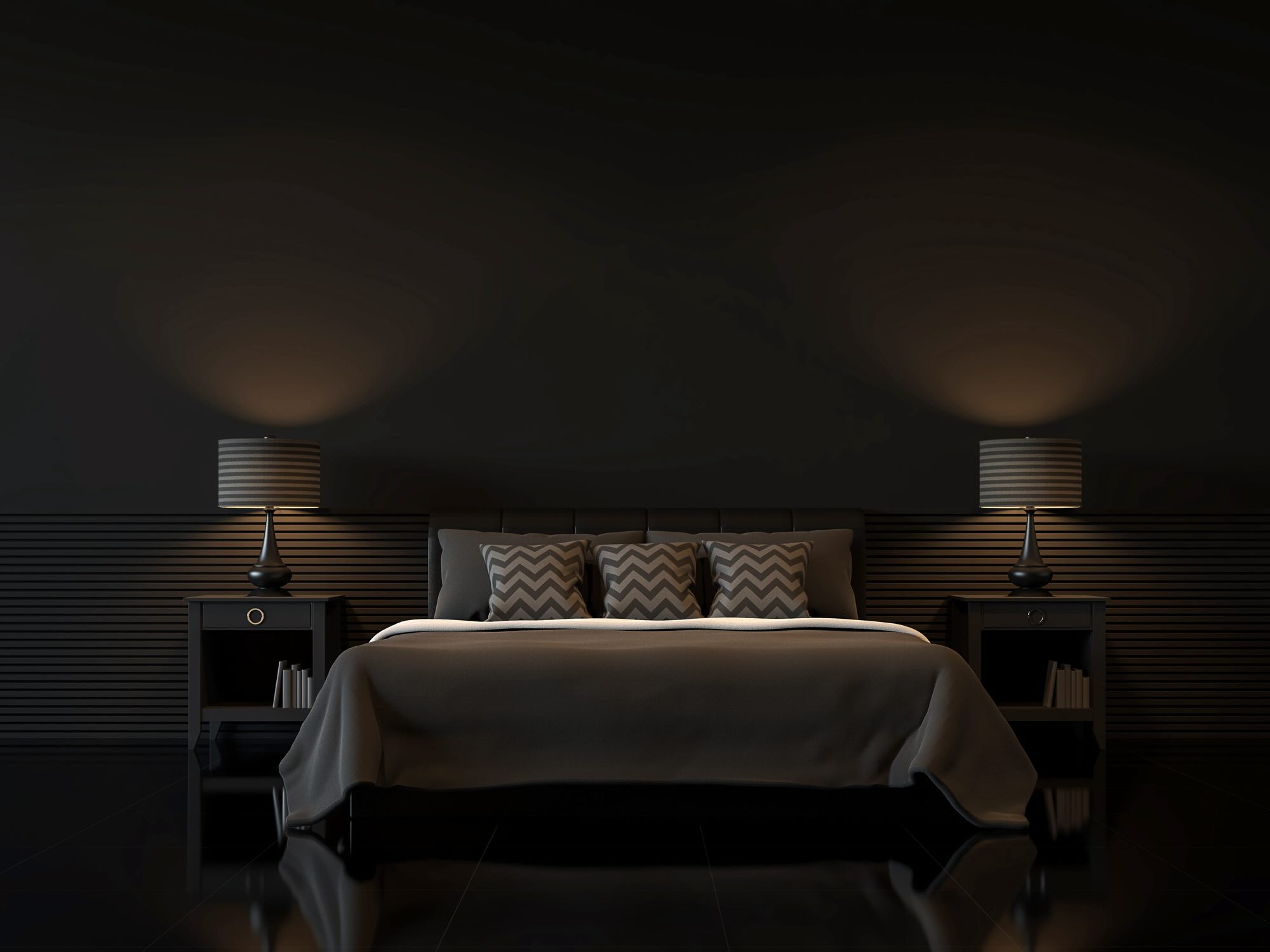
Optimize Your Room for Sleep Hygiene
Sleep hygiene refers to your sleep routine and the physical state of your bedroom. Discover the simple steps you can take to improve your bedroom environment and boost both the quality and quantity of your sleep.
Learn MoreHow to Choose a Dehumidifier
- Room Size: Match the dehumidifier's capacity to the size of your space for optimal efficiency.
- Climate Considerations: Desiccant models excel in colder climates, while refrigerant types perform better in warmer environments.
- Noise Level Matters: Prioritize quiet operation, especially for bedrooms.
- Maintenance Considerations: Choose desiccant models with convenient refilling/regeneration options or refrigerant models with easily accessible buckets for emptying.
- Features: Look for features like automatic shutoff, adjustable humidity levels, timers and even smart home integration for enhanced convenience.
Different Types of Dehumidifiers
- Desiccant Dehumidifiers: Absorb moisture like a sponge, ideal for cold climates and basements. Require refilling or regeneration.
- Compressor or Refrigerant Dehumidifiers: Cool air to condense moisture, collecting it in a bucket. More efficient, but need proper drainage and can be noisy.
Who Might Benefit from a Dehumidifier
- Allergy and Asthma Sufferers: Dust mites flourish in humid environments. Dehumidifiers can reduce their numbers, providing relief for allergy and asthma sufferers.
- Comfort Creation: Dehumidifiers can add moisture to dry air, enhancing skin comfort and creating a more pleasant indoor environment.
- Fight off Unwanted Pests: Reduce the number of pests by reducing mold and dust.
Who Would Not Benefit from a Dehumidifier
- Respiratory conditions exacerbated by dry air.
- Skin conditions affected by low humidity.
- Sinus problems.
- Eye irritation.
- Sjögren's syndrome.
- Pre-existing throat and nasal dryness.

Relevant Research - Dehumidifiers
The evidence regarding the impact of dehumidifiers on sleep quality is nuanced. The Environmental Protection Agency (EPA) suggests maintaining indoor air humidity between 30-50% for optimal air quality, which can indirectly affect sleep comfort (EPA). However, a review of literature on high humidity's extended exposure indicates a lack of specific evidence directly linking low indoor air humidity to sleep quality. This overview suggests that while maintaining optimal humidity levels might contribute to overall comfort, its direct impact on sleep quality is not clearly established. Furthermore, the same review points out that high humidity levels can have a negative impact on sleep, as supported by multiple studies (Int. Journal of Hygiene and Environmental Health).
This evidence implies that while dehumidifiers can create a more comfortable environment, especially in very humid conditions, their direct effect on improving sleep quality is not conclusively proven and varies depending on individual conditions and environmental factors.

